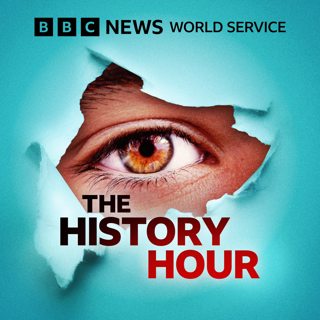
The war on drugs
US President Richard Nixon declared illegal drugs 'public enemy number one' in 1971 and launched a worldwide 'war' on the narcotics trade. 50 years on we revisit key moments in the ongoing fight against the powerful criminal groups involved from Columbia to Afghanistan. We'll hear personal stories from the front line of drug addiction, plus journalist and author Ioan Grillo joins our presenter Max Pearson to discuss, what went wrong in the war on drugs?Photo: US President Richard Nixon (BBC)
5 Juni 202150min

Amilcar Cabral: an African liberation legend
We remember Amilcar Cabral, who led the armed struggle against Portuguese colonial rule in West Africa in the 1970s and speak to Dr Nayanka Perdigao about his legacy. Plus the shocking fallout of the Indian rail strike in 1974 which was - at the time - the biggest industrial action on record and from a century ago, the Tulsa race massacre, when thousands of African Americans were left homeless and hundreds were killed. We'll also find out how Lotfia Elnadi became the first Arab woman pilot in 1933 and the story behind the first big charity fundraising rock concert in the Soviet Union when communism broke with its antipathy toward western pop music.Photo: Rebel soldiers on patrol in Guinea Bissau during the Portuguese Colonial War in West Africa, 1972. Credit: Reg Lancaster/Express/Hulton Archive/Getty Images
29 Maj 202149min

When Egypt said Enough
Under the slogan 'kefaya' which means 'enough' in Arabic, in 2004 Egyptians began protesting in Cairo against the rule of President Hosni Mubarak. The months of demonstrations took place several years before the Arab Spring swept through the region and drew many people onto the streets for the first time in their lives. We get an eye-witness account.Plus, Ariel Sharon's controversial visit to the al-Aqsa mosque in Jerusalem in 2000, the women who staged strikes against military rule in South Korea, and the landmark 1971 conference on saving the world's wetlands.PHOTO: Protestors in Egypt in 2004 (AFP/Getty Images)
22 Maj 202150min

Why a British MP was filmed taking mescaline
# Warning: This programme contains descriptions of drug use # In 1955 Christopher Mayhew MP took the hallucinogenic drug mescaline for a TV experiment. We look back at the history of psychedelic research and speak to Dr Robin Carhart-Harris, head of the Centre for Psychedelic Research at Imperial College London. Plus, the battle to legalise contraception in Ireland, a pro-democracy activist in China, the chemical and biological weapons programme in apartheid South Africa, and why thousands of Jews secretly fled Iraq in the 1970s.
15 Maj 202150min

The IRA hunger strikes
The IRA hunger strikes of 1981 – Max Pearson hears from Suzanne Breen of the Belfast Telegraph about the impact of the hunger strikes in Northern Ireland. Plus, one man’s story of surviving Guantanamo Bay, how a French winemaker exposed a wine fraudster, feminist science fiction pioneer Ursula Le Guin, and cannabis coffee shops in Amsterdam.
8 Maj 202149min

The killing of Osama Bin Laden
It is 10 years since the al-Qaeda leader was killed. We look at the US special forces operation that finally tracked him down to a city in northern Pakistan, the 1979 siege of the Grand Mosque in Mecca, one of the events that shaped his world view; we talk to a Western-based journalist who met him, hear from a survivor of the attacks on the US embassies in Nairobi and Dar es Salaam in 1998 and hear about the hunt for the al-Qaeda leader in the mountains of Afghanistan after 9/11.(Photo: Osama Bin Laden. Credit:AFP/Getty Images)
1 Maj 202149min

How the NRA became a US political lobbying giant
The origins of the gun lobby in the US. Plus we speak to Prof Robert Spitzer about the power of the National Rifle Association. Also, the mysterious American who killed two men in Pakistan and triggered a diplomatic crisis, the historic trial of the Nazi war criminal Adolf Eichmann in 1961, the battle to reclaim a Native American sacred lake, and the first space shuttle mission.Photo: National Rifle Association Holds Its Annual Conference In Dallas, Texas. DALLAS, TX - MAY 05 2018. Credit: Justin Sullivan/Getty Images
24 Apr 202149min

The first woman in the US Supreme Court
Sandra Day O'Connor was appointed to America's top court in 1981. She'd been nominated by newly-elected Republican president Ronald Reagan. Also in the programme: an eye-witness on the beaches during the failed Bay of Pigs invasion in Cuba, the worm that unlocked secrets of genetics in the 1960s, the decline of the South Asian vulture and China's "kingdom of women".Photo:Sandra Day O'Connor is sworn in at the Senate confirmation hearing on her selection as a US Supreme Court justice, September 1981 (Credit: Keystone/Consolidated News Pictures/Getty Images)
17 Apr 202149min






















